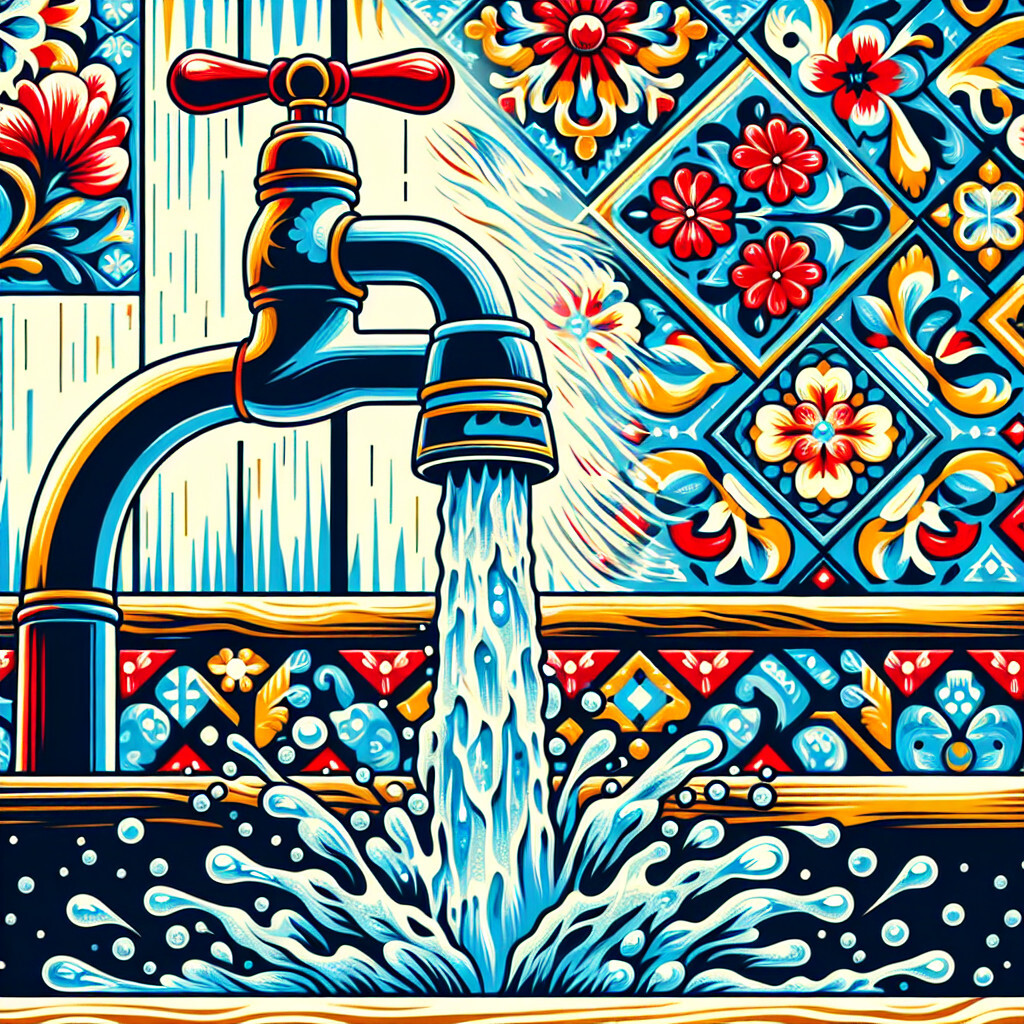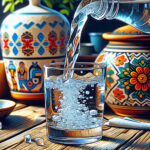-
Table of Contents
“Croatia’s Tap Water: Pristine, Pure, and Perfectly Drinkable!”
Introduction

The tap water in Croatia is generally of high quality and safe to drink. It meets all the international standards for potable water. The country’s water supply system is well-maintained, ensuring that both locals and tourists have access to clean and safe drinking water. However, the taste and hardness can vary depending on the region due to different sources of water. In coastal areas, desalination plants are often used, while in inland regions, water is typically sourced from natural springs and wells. Despite this, bottled water is still widely consumed, particularly by tourists.
Understanding the Quality of Tap Water in Croatia
Croatia, a beautiful country located in Southeast Europe, is renowned for its stunning coastline, rich history, and vibrant culture. However, one aspect of the country that often goes unnoticed is the quality of its tap water. For both locals and tourists, understanding the quality of tap water in Croatia is essential for health and safety reasons.
Croatia’s tap water is generally safe to drink, thanks to the country’s stringent water quality standards. The Croatian Institute of Public Health, along with local health departments, regularly monitors the quality of tap water across the country. They conduct comprehensive tests to ensure that the water is free from harmful bacteria, viruses, and chemicals. The water is also checked for its pH level, hardness, and mineral content.
The tap water in Croatia comes from various sources, including groundwater, springs, and surface water from lakes and rivers. The water undergoes a rigorous purification process before it reaches the taps. This process includes filtration, disinfection, and sometimes softening, depending on the source of the water. The end result is clean, clear, and safe tap water that meets or exceeds European Union standards.
However, the quality of tap water can vary from region to region in Croatia. In urban areas, where the water infrastructure is more developed, the tap water is usually of high quality. In contrast, in some rural areas, the tap water may not be as clean due to less advanced water treatment facilities. Therefore, it is advisable for visitors to these areas to drink bottled water or use a water purifier.
Despite the general safety of tap water in Croatia, some people may still prefer to drink bottled water. This preference is often due to the taste of the tap water, which can vary depending on its source and treatment process. For instance, tap water that comes from groundwater sources may have a slightly different taste compared to water from surface sources. This difference in taste is usually due to the natural minerals present in the water.
In addition, some people may experience minor digestive issues when they first start drinking tap water in a new country. This is not necessarily because the water is unsafe, but rather because their bodies are not used to the different mineral composition of the water. If this happens, it is usually temporary and resolves on its own.
In conclusion, the tap water in Croatia is generally safe to drink, thanks to the country’s rigorous water quality standards and monitoring. However, the quality can vary from region to region, and some people may prefer the taste of bottled water or experience minor digestive issues when they first start drinking the tap water. Therefore, it is always a good idea to stay informed about the local water quality and make an informed decision about whether to drink tap water or bottled water.
Health Implications of Drinking Tap Water in Croatia
Croatia, a beautiful country located in the heart of Europe, is renowned for its stunning coastline, rich history, and vibrant culture. However, one aspect that often goes unnoticed is the quality of its tap water. The health implications of drinking tap water in Croatia are a topic of interest for both locals and tourists alike.
Croatia’s tap water is generally safe to drink, thanks to the country’s stringent water quality standards. The Croatian Institute of Public Health regularly monitors the quality of tap water across the country, ensuring that it meets the European Union’s strict guidelines for potable water. These guidelines cover a wide range of parameters, including microbiological, chemical, and radiological aspects, to ensure that the water is safe for human consumption.
The primary source of tap water in Croatia is groundwater, which is naturally filtered through layers of rock and soil. This natural filtration process removes many potential contaminants, resulting in water that is typically clean and safe to drink. However, the quality of tap water can vary depending on the specific location within the country. In urban areas, the water supply is often treated with chlorine to kill any remaining bacteria or viruses, which can slightly alter the taste but does not pose any health risks.
In contrast, in some rural areas, the tap water may come from local wells or springs, which are not always subject to the same rigorous testing and treatment as municipal water supplies. While these sources are generally safe, there is a slightly higher risk of contamination, particularly after heavy rainfall or flooding. Therefore, it is advisable for individuals in these areas, especially those with weakened immune systems, to boil their water before drinking or use a reliable water filter.
Despite the overall safety of tap water in Croatia, some people may experience minor gastrointestinal discomfort when they first start drinking it. This is not usually a sign of any serious health issue but rather a result of the body adjusting to the different mineral content in the water. Drinking bottled water can help alleviate these symptoms, although it is not a sustainable long-term solution due to the environmental impact of plastic waste.
Furthermore, it is important to note that while Croatia’s tap water is generally safe to drink, it may not be suitable for everyone. Individuals with specific health conditions, such as kidney disease, may need to avoid drinking tap water due to its mineral content. Pregnant women and young children may also need to take extra precautions, as their immune systems are more susceptible to potential contaminants.
In conclusion, the tap water in Croatia is generally safe to drink, with the quality closely monitored to meet European Union standards. However, the quality can vary depending on the location, and certain individuals may need to take extra precautions. As a rule of thumb, when in doubt, it is always safer to drink bottled water or use a reliable water filter. By staying informed and taking appropriate precautions, one can enjoy the beauty of Croatia without worrying about the health implications of its tap water.
The Process of Tap Water Treatment in Croatia
Croatia, a beautiful country located in the heart of Europe, is renowned for its stunning landscapes, rich history, and pristine beaches. However, one aspect that often goes unnoticed is the quality of its tap water. The tap water in Croatia undergoes a rigorous treatment process to ensure it is safe for consumption and meets the highest international standards.
The process of tap water treatment in Croatia is a comprehensive one, beginning with the collection of raw water from natural sources. The country is blessed with an abundance of fresh water resources, including rivers, lakes, and underground aquifers. The water collected from these sources is typically clear and of high quality, but it still contains natural impurities that need to be removed.
The first step in the treatment process is coagulation and flocculation. During this stage, chemicals are added to the water to bind together the small particles of dirt and other impurities, forming larger particles called flocs. These flocs are then removed from the water through a process called sedimentation, where they settle to the bottom of the water supply due to their increased weight.
Following sedimentation, the water undergoes filtration to remove any remaining particles. The water is passed through layers of sand, gravel, and charcoal, which act as filters to trap any remaining impurities. This process not only removes particles but also helps to eliminate bacteria and other microorganisms that may be present in the water.
After filtration, the water is disinfected to kill any remaining bacteria, viruses, and other pathogens. This is typically done using chlorine or other disinfectants. The disinfection process is crucial in ensuring the safety of the tap water, as it eliminates any potential health risks associated with waterborne diseases.
Once the water has been disinfected, it is then fluoridated. Fluoridation is the process of adding a controlled amount of fluoride to the water supply to help prevent tooth decay. This process is widely recognized by health organizations worldwide as a safe and effective way to improve oral health.
The final step in the treatment process is pH adjustment. This involves adding chemicals to the water to adjust its pH level, ensuring it is neither too acidic nor too alkaline. Maintaining the correct pH level is important as it helps to prevent corrosion in the water supply system, which can lead to the presence of harmful metals in the water.
After the water has undergone this rigorous treatment process, it is then distributed to homes and businesses throughout the country. Regular testing is carried out to ensure the water continues to meet the highest standards of quality and safety.
In conclusion, the tap water in Croatia is subject to a thorough and comprehensive treatment process, ensuring it is safe for consumption and meets international standards. This process involves several stages, including coagulation and flocculation, sedimentation, filtration, disinfection, fluoridation, and pH adjustment. As a result, residents and visitors to Croatia can have confidence in the quality and safety of the tap water.
Comparing Croatian Tap Water to Other European Countries
Croatia, a beautiful country located in Southeast Europe, is renowned for its stunning coastline, rich history, and vibrant culture. However, one aspect of the country that often goes unnoticed is the quality of its tap water. When compared to other European countries, Croatian tap water stands out for its exceptional quality and safety standards.
In Croatia, tap water is not just a basic necessity, but a source of pride. The country’s water supply is primarily sourced from natural springs and underground wells, which are abundant due to the country’s diverse geographical features. This natural filtration process contributes to the water’s high quality, making it not only safe to drink but also exceptionally pure and refreshing.
The Croatian government has implemented stringent water quality standards, ensuring that the tap water is regularly tested for a range of contaminants. These tests are conducted in accordance with the European Union’s Drinking Water Directive, which sets strict limits on the levels of various substances in drinking water. The results consistently show that Croatian tap water meets, and often exceeds, these standards.
In comparison to other European countries, Croatia’s tap water is often considered superior. For instance, in the United Kingdom, tap water is generally safe to drink, but it is often treated with a significant amount of chemicals to kill bacteria and other microorganisms. This can affect the taste and odor of the water, making it less appealing to drink straight from the tap.
Similarly, in countries like Spain and Italy, while the tap water is technically safe to drink, many locals and tourists prefer to buy bottled water due to concerns about the taste and potential health risks. This is not the case in Croatia, where the tap water is not only safe and clean but also tastes good.
In fact, the quality of Croatian tap water is so high that it is often compared to bottled water. A study conducted by the Croatian Institute of Public Health found that the mineral content of Croatian tap water is similar to that of many popular brands of bottled water. This means that drinking tap water in Croatia can provide the same health benefits as drinking bottled water, without the environmental impact or cost.
However, it’s important to note that the quality of tap water can vary between different regions of Croatia. In general, the tap water in urban areas and tourist hotspots is of excellent quality. However, in some rural areas, the water may come from local wells that are not subject to the same rigorous testing standards. Therefore, it’s always a good idea to ask locals or your accommodation provider about the quality of the tap water in the area.
In conclusion, when it comes to the quality of tap water, Croatia stands out among its European counterparts. Its natural sources, stringent testing standards, and high mineral content make Croatian tap water not only safe to drink but also a healthy and environmentally friendly alternative to bottled water. So, the next time you find yourself in this beautiful country, don’t hesitate to fill your glass straight from the tap.
Q&A
1. Question: Is tap water in Croatia safe to drink?
Answer: Yes, tap water in Croatia is generally safe to drink.
2. Question: How is the quality of tap water in Croatia?
Answer: The quality of tap water in Croatia is high, as it meets the standards set by the World Health Organization.
3. Question: Does the tap water in Croatia taste good?
Answer: The taste of tap water can vary depending on the region, but generally, Croatian tap water is considered to have a neutral taste.
4. Question: Do I need to boil tap water in Croatia before drinking?
Answer: No, it is not necessary to boil tap water in Croatia before drinking as it is already treated and safe for consumption.
Conclusion
The tap water in Croatia is generally safe and of high quality, suitable for drinking and daily use. However, the taste and hardness can vary depending on the region.






